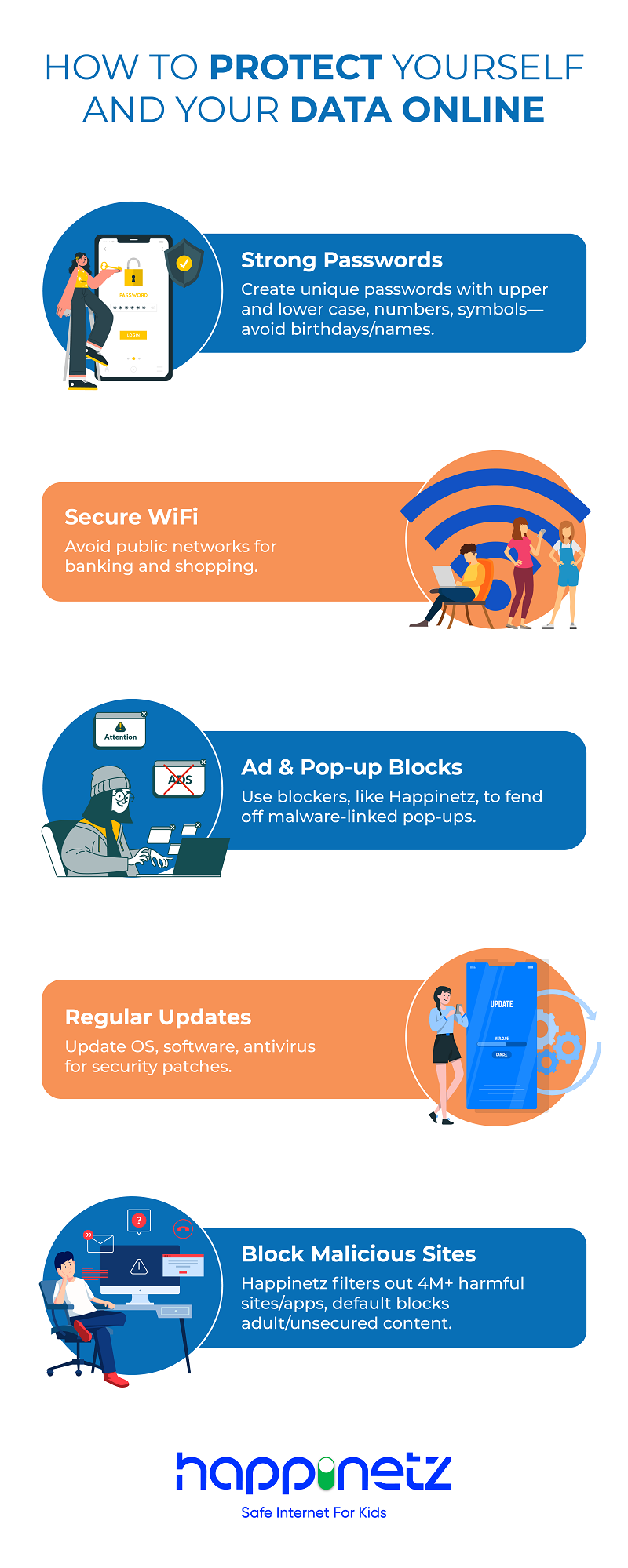In today’s digitized world, the internet has become an integral part of our lives, revolutionizing the way we communicate, conduct business, and access information. However, with the immense benefits of online connectivity come significant challenges and risks, particularly in terms of protecting sensitive data and safeguarding against cyber threats.
What is Internet Security?
Internet security refers to the protection of any activity or transactions that are made over the Internet. It includes all aspects of online infrastructure like computer systems, networks, and data. Internet security involves implementing protocols and measures to ensure the confidentiality and availability of information online.
Why is Internet Security Important?
Internet security is important as it keeps hackers at bay preventing cyberattacks. It also helps in safeguarding any personal and sensitive information, preventing unauthorized access and financial fraud. Moreover, e-commerce and online banking rely heavily on secure Internet connections to protect financial transactions. Internet security ensures that payment information and personal data are encrypted and confidential.

Common Internet Security Threats
Though the internet has helped us in a great many ways, it is a can of worms that has been welded open. There are some serious security issues that one should be aware of while using the internet.
-
Malware: Malware is malicious software that can infect computers and networks. These can be viruses, worms, trojans, and ransomware which cause data loss, unauthorized access and system damage,
-
Phishing: When cybercriminals send fake emails or messages that appear legitimate to trick users into revealing confidential and sensitive information like bank credentials, or login passwords, it is known as phishing. It can typically be in the form of an email, text message or phone call.
-
Botnets: A single attacker compromises a network of devices turning them into bots. These bots can be used to launch DDoS attacks and send spam.
-
Ransomware: Ransomware is when malicious software infects a computer, hijacks the files, and restricts the user's access to it until you pay a huge ransom. A text is often displayed as an on-screen message informing the same.
-
Wi-Fi Threats: Wi-Fi threats are common when a user uses a public WiFi network or a network that is available to the public. Common WiFi threats include Man-in-the-middle attacks and Packet sniffing.
How to Protect Yourself and Your Data Online
-
Use strong passwords: Create strong and unique passwords that include a mix of uppercase and lowercase letters, numbers and symbols. Avoid using easily guessable information like birthdays or names.
-
Use Secure WiFi networks: Avoid using public Wifi networks for sensitive activities like online banking or shopping which involves online transactions.
-
Use ad blockers and pop-up blockers: Most pop-ups and ads are often linked to malware and it is important to have a good filtering system in place. Happinetz system blocks a good number of malicious pop-ups.
-
Updated software. It is important to regularly update your operating system, software, and antivirus systems. Updates often include security patches that protect your system against known vulnerabilities.
-
Block Malicious Websites. Happinetz system uses a multi-level filtering system to filter out more than 4 million malicious websites and apps. It sends all the app and website requests to a central filtering system which determines whether the requests should be permitted or denied. By default, all adult and unsecured websites and apps are blocked by the Happinetz system.
Happinetz: An Internet Security Friend
Happinetz acts like your expert friend by helping you have a safe and secure space on the internet. With its multi-level filtering system, Happinetz divides the internet into 15 different categories. All adult and malicious websites are blocked by default while monitoring over 110 million websites and apps on the internet. It thus plays a significant role in providing safe internet for kids.
FAQs
What is the importance of internet security?
Internet security is most important to protect personal information, data integrity and confidentiality. It also helps in maintaining privacy and protects users from cyber attacks like malware, phishing, and hacking.
Types of Internet security?
The different types of internet security include encryption, Virtual Private Network or VPN, Multi-Factor Authentication or MFA, SSL and TLS protocols, Patch management, firewalls, and antivirus software.
Advantages of Internet security
There are many advantages to internet security. Here are a few:
- Protection against cyberattacks
- Safeguarding personal information
- Secure online transactions
- Data integrity and confidentiality
- Enhanced privacy




